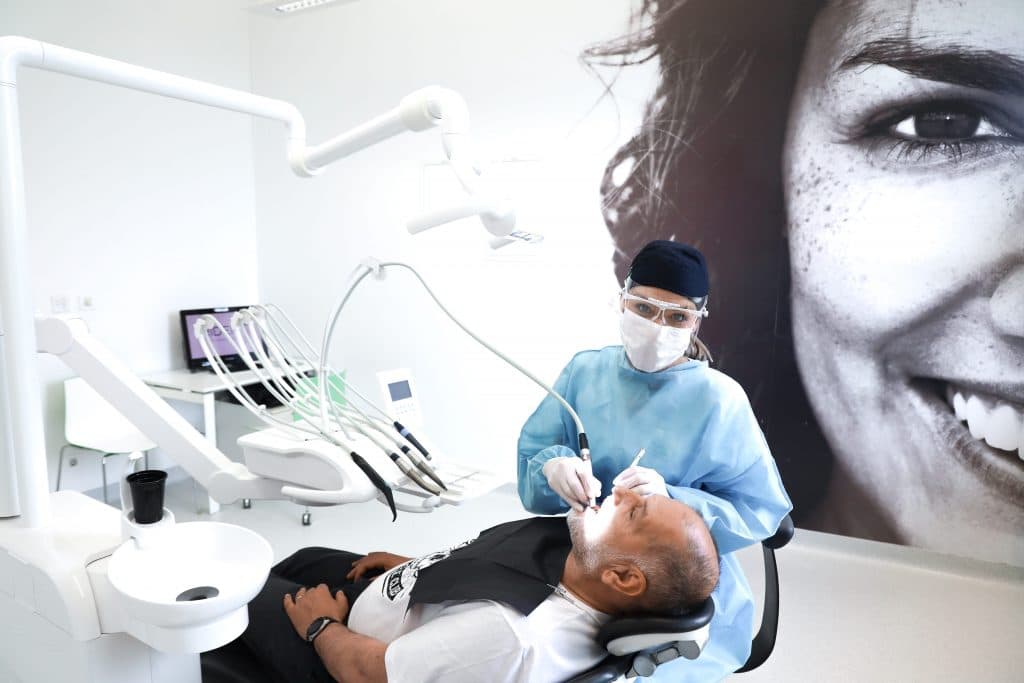09.03.2022
Periodontal diseases (periodontitis) are groups of diseases that affect soft tissues (gingiva, periodontal ligament) and hard tissues (tooth root cementum and alveolar ridge).
Periodontitis, depending on the degree of tissue involvement, can be divided into gingivitis (inflammatory changes in the gums) and periodontitis (inflammatory changes in the supporting tissue of the teeth). The main causes of periodontitis are bacteria found in dental plaque.
Dental plaque is a soft, yellowish formation that adheres to the enamel surface of the tooth and forms a few minutes after eating. Inadequate oral hygiene, which does not remove food debris and newly formed plaque, creates ideal conditions for an increase in bacteria, which then create inflammatory processes first on the gums, and later if persistent lead to inflammatory processes in the supporting apparatus of the tooth or periodontium.

The development of periodontal diseases poses a danger to the oral cavity itself, as well as to the health of the entire organism. The presence of periodontitis is considered a risk factor for systemic diseases in the form of cardiovascular disorders, cerebrovascular diseases, diabetes and various rheumatoid conditions.
Periodontitis in most cases occurs as a consequence of inadequate oral hygiene, while periodontitis itself is a progressive disease whose consequences end up as a complex surgical-prosthetic therapy.
Prevention of periodontal diseases, in addition to adequate oral hygiene, includes regular visits to the dentist and professional cleaning of tartar. Patients who have prosthetic replacements (crowns, bridges, implants), in addition to the usual means of maintaining oral hygiene (toothpaste, toothbrush, floss, oral shower, interdental brushes) can use antiseptic fluids as a supplement to maintain good oral hygiene. Prevention of the development of periodontal diseases is also considered to be the avoidance of risk factors, which are primarily smoking cessation, alcohol consumption and drug use.
Another group of risks for the development of periodontal diseases are some systemic conditions such as diabetes, osteopenia, osteoporosis, stress, drugs, genetic factors and vitamin C deficiency.
Taking into account all the above, the best prevention of the occurrence and development of periodontal diseases is considered to be adequate oral hygiene with regular visits to the dentist, approximately every 3-6 months.